When your
local authority
 A local authority is also called a
council
A local authority is also called a
council
 A council is also called a local authority. They are a group of people who make decisions about some of the things in the area where you live. These include: schools,
social care
A council is also called a local authority. They are a group of people who make decisions about some of the things in the area where you live. These include: schools,
social care
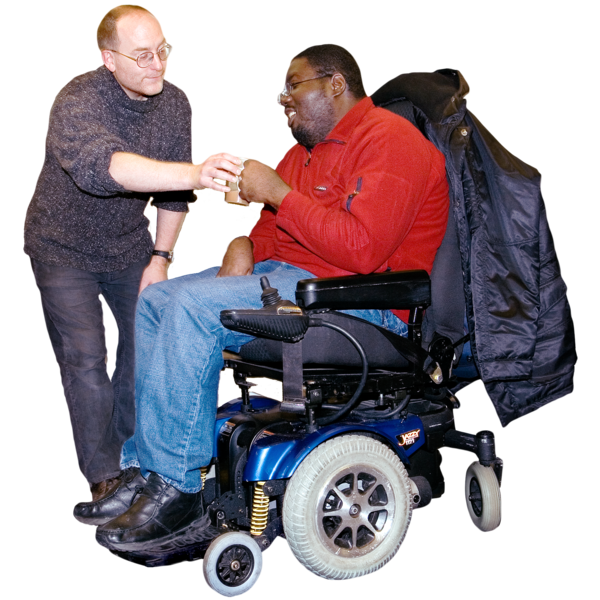 Social care means the services that give care and support to people who need it.
(support for people), parks and dustbin collection.
. They are a group of people who make decisions about some of the things in the area where you live like schools, social care (support for people), parks and dustbin collection.
provides care and support, it might charge you for this if it decides that you have the money to contribute towards the cost of your services.
Social care means the services that give care and support to people who need it.
(support for people), parks and dustbin collection.
. They are a group of people who make decisions about some of the things in the area where you live like schools, social care (support for people), parks and dustbin collection.
provides care and support, it might charge you for this if it decides that you have the money to contribute towards the cost of your services.
How the local authority decides how much you could pay
Your local authority must do a financial
assessment
 An assessment is a way of finding out what help a person needs. When you have an assessment, you might have to go to a meeting or fill in a form.
which will say how much you have to pay to the local authority towards the cost of your care and support. The assessment will look at two things: your income and your living costs.
An assessment is a way of finding out what help a person needs. When you have an assessment, you might have to go to a meeting or fill in a form.
which will say how much you have to pay to the local authority towards the cost of your care and support. The assessment will look at two things: your income and your living costs.
Assessment of your income
First the council will look at any income you have, such as disability benefits. Many things cannot be included as income, such as:
- the mobility component of
Disability Living Allowance
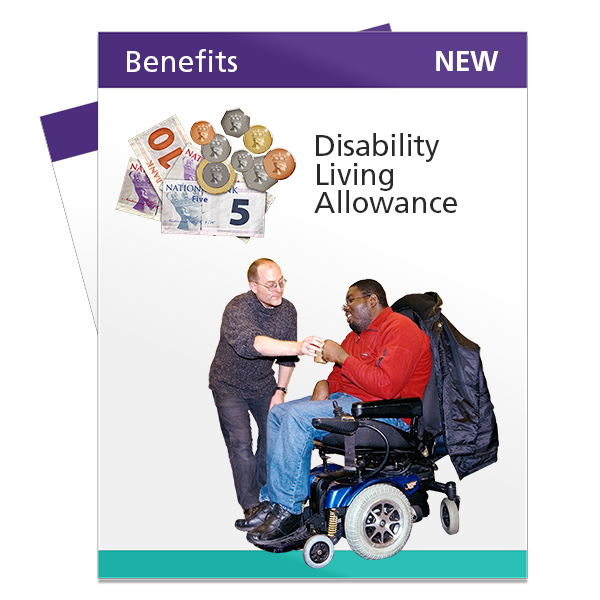 Disability Living Allowance (DLA) is the name of a benefit that some people with a disability get. The money is to pay for extra help you might need to look after yourself and to get around. Disability Living Allowance is being replaced by a benefit called
Personal Independence Payment
Disability Living Allowance (DLA) is the name of a benefit that some people with a disability get. The money is to pay for extra help you might need to look after yourself and to get around. Disability Living Allowance is being replaced by a benefit called
Personal Independence Payment
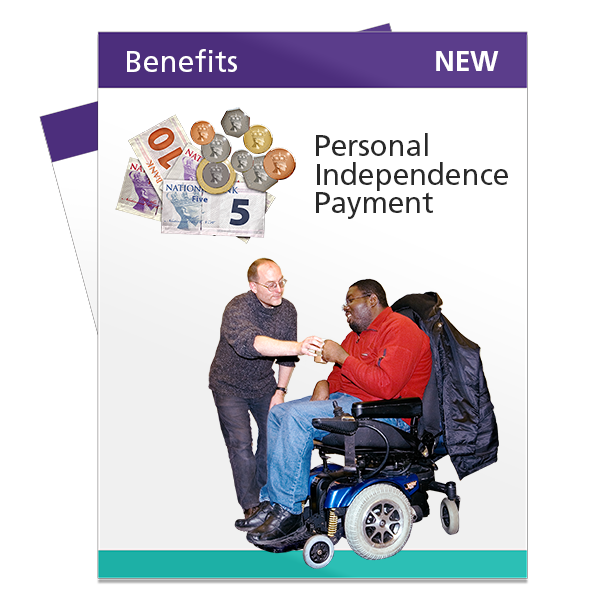 Personal
Independence
Personal
Independence
 Independence means doing things on your own. Making your own choices.
Payment (PIP) is the name of a benefit that some people with a disability or health condition get. The money is to pay for extra help you might need to look after yourself and to get around. Some people who used to get Disability Living Allowance (DLA) now get PIP instead.
(PIP).
or Personal Independence Payment
Independence means doing things on your own. Making your own choices.
Payment (PIP) is the name of a benefit that some people with a disability or health condition get. The money is to pay for extra help you might need to look after yourself and to get around. Some people who used to get Disability Living Allowance (DLA) now get PIP instead.
(PIP).
or Personal Independence Payment - money paid for night-time care
- money you earn from working (this is so they don’t prevent disabled people from working)
- your family members’ incomes – only yours can be assessed.
The local authority will also look at any assets you have, such as savings or if you own any property:
- If you have savings of over £14,250, the local authority might take that into account when calculating your income. They will count you as having £1 of weekly income for every £250 over £14,250 that you have.
- If you have savings of £23,250 or more you may have to pay the full costs of services.
- If you own property, it should only be taken into account if you do not live there.
- They cannot ask your family to meet the costs of charges, even if you live with your family.
Assessment of your living costs
When the local authority has worked out what your income is, they must then assess what your living costs are, such as
rent
 Rent is the money that you pay to live in your home when you have a
tenancy agreement
Rent is the money that you pay to live in your home when you have a
tenancy agreement
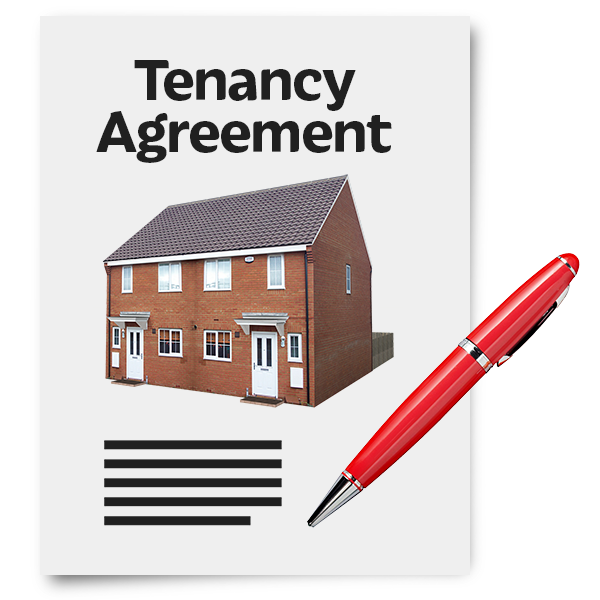 A Tenancy agreement is where the person renting a house, and the person who owns the house, agree on things like how much rent to pay, who will mend things like the cooker if they go wrong, and whether you are allowed pets.
. Your home belongs to a
landlord
A Tenancy agreement is where the person renting a house, and the person who owns the house, agree on things like how much rent to pay, who will mend things like the cooker if they go wrong, and whether you are allowed pets.
. Your home belongs to a
landlord
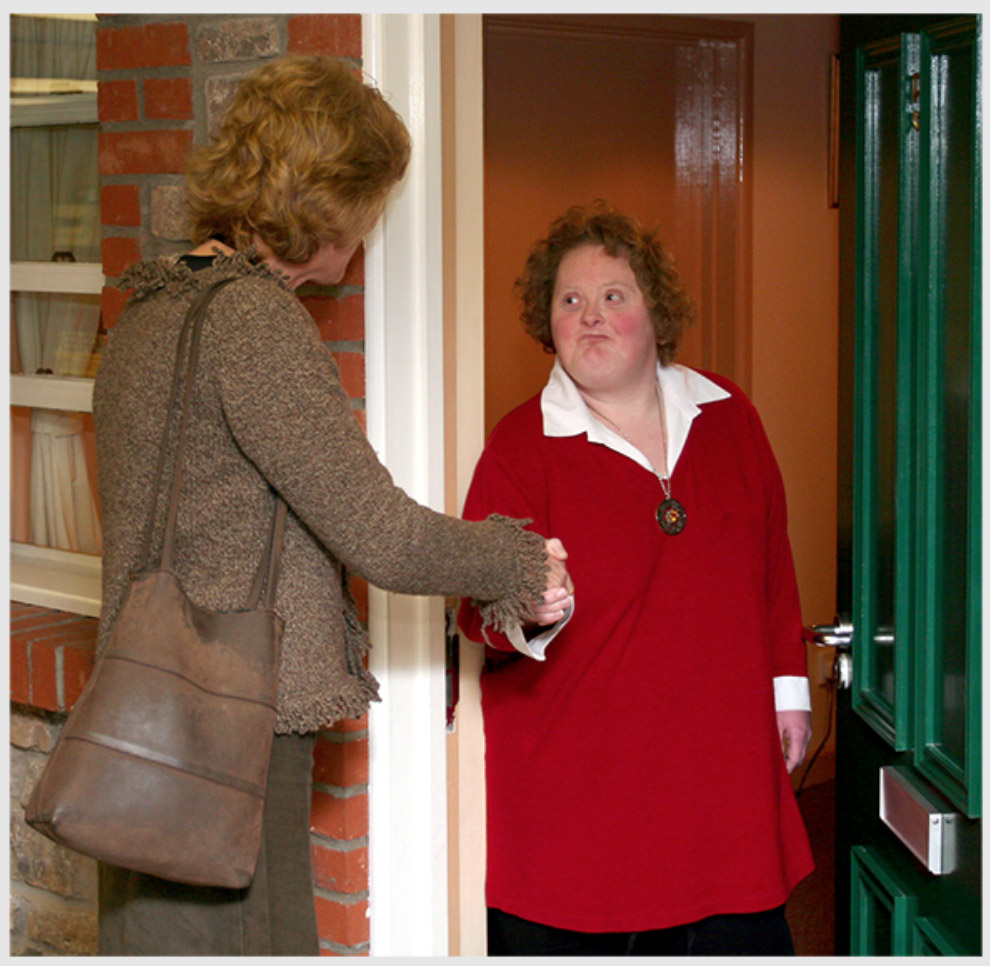 A landlord is the owner of a property which they rent out to tenants. They can be a council, a housing association, or an individual person.
, but you have a right to live there as long as you follow the rules that are in your tenancy agreement.
and bills.
A landlord is the owner of a property which they rent out to tenants. They can be a council, a housing association, or an individual person.
, but you have a right to live there as long as you follow the rules that are in your tenancy agreement.
and bills.
If you live at home with your family and contribute towards housing costs, make the local authority aware of what you pay. Some local authorities may take this into account, as they would for rent or mortgage costs if you lived on your own.
When looking at outgoings the council must consider all “disability related expenditure”. Disability related expenditure is any reasonable item or adjustment needed for a disabled person to live independently.
Examples of disability related expenditure:
- Costs of any privately arranged care services, including
respite
 Respite is when a person goes somewhere for a few hours or days to have a break. People with a
learning disability
Respite is when a person goes somewhere for a few hours or days to have a break. People with a
learning disability
 A learning disability is to do with the way someone's brain works. It makes it harder for someone to learn, understand or do things.
can have respite from their carers and family, and carers and family can have respite from the people they care for.
care.
A learning disability is to do with the way someone's brain works. It makes it harder for someone to learn, understand or do things.
can have respite from their carers and family, and carers and family can have respite from the people they care for.
care. - Costs of any special items caused by a disability – for example:
- above average gas/electricity/water costs, for example because of the need to wash bedding more often or the need to keep the house at a warmer temperature
- special clothing or footwear, for example where this needs to be specially made, or additional wear and tear to clothing and footwear caused by disability
- special washing powders or laundry
- additional costs of bedding, for example because of incontinence
- costs of basic cleaning, garden maintenance or other domestic help, if needed because of disability and not met by social services
- personal assistance costs, including household or other necessary costs for the individual
- additional costs of special dietary needs due to disability
- purchase, maintenance and repair of disability related equipment, this may include computer costs where necessitated by the disability
- transport costs needed because of disability, including costs of transport to and from day centres, where this costs more than the mobility component of DLA and is not provided by social services.
Your local authority might use a set amount to cover disability related expenditure, but if you think what you spend on disability related costs is higher than that set amount, you should say this.
Once the local authority has worked out your income and your living costs, it has an amount of money 'left over', from which you could be asked to pay charges for your care and support.
Frequently asked questions (FAQ)
We've created some FAQs to help answer some of the questions you might have about paying for support.
Click the questions below to reveal each answer:
How much should I be left with after charges?
Once income and living costs have been taken into account, the council must make sure the charges are “reasonable” in terms of the kind of service being provided and are not above the cost of providing the service. This means the local authority cannot make a profit from charges for services.
Even if you can pay the charges decided on by a local authority, the council cannot force you to pay if this would leave you with too little money to live on. The
law
 Laws are the rules that everyone in the country has to follow. If you don't follow the rules you can get in trouble with the police.
states that paying towards your support should not leave you with less than a certain amount. This is called the “minimum income guarantee”, and it is different for different people depending on their circumstances.
Laws are the rules that everyone in the country has to follow. If you don't follow the rules you can get in trouble with the police.
states that paying towards your support should not leave you with less than a certain amount. This is called the “minimum income guarantee”, and it is different for different people depending on their circumstances.
If the charges are for residential services this does not apply, as it is assumed that the
care home
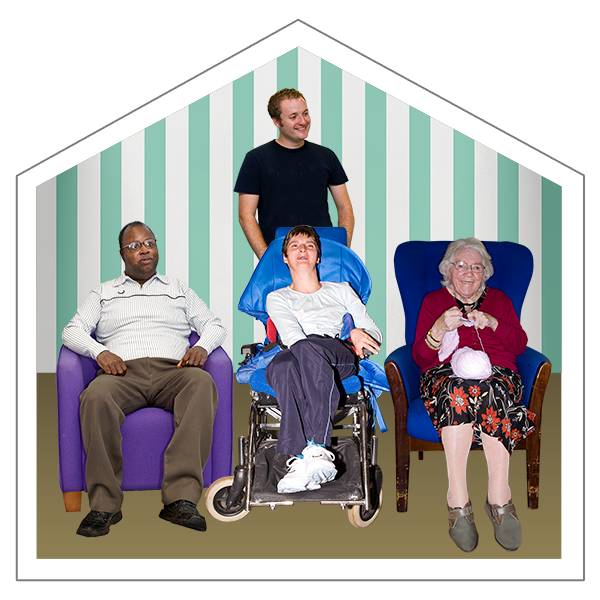 A care home is a place where people who need support live. There are staff there all the time.
or college provide you with everything you need to live on. In that case, you must be left with at least £24.90 a week as a personal expenses allowance (PEA), which should not be spent on any aspect of care, board or lodgings but is for you to spend as you wish.
A care home is a place where people who need support live. There are staff there all the time.
or college provide you with everything you need to live on. In that case, you must be left with at least £24.90 a week as a personal expenses allowance (PEA), which should not be spent on any aspect of care, board or lodgings but is for you to spend as you wish.
How does it work if I get direct payments?
If you receive
direct payments
 Direct payments are when the money for your care and support, or benefits, is paid to you.
to arrange your support, the council can still ask you to contribute some money towards your care. In general they will do this by deducting the amount they are charging you from the direct payment before you receive it, so you get the ‘net’ amount and don’t need to pay any charges out of that or out of your income. Whether a council does it this way, or gives you the ‘gross’ amount and charges you separately, is up to them but the council should take into account your views and be flexible in responding to individual circumstances.
Direct payments are when the money for your care and support, or benefits, is paid to you.
to arrange your support, the council can still ask you to contribute some money towards your care. In general they will do this by deducting the amount they are charging you from the direct payment before you receive it, so you get the ‘net’ amount and don’t need to pay any charges out of that or out of your income. Whether a council does it this way, or gives you the ‘gross’ amount and charges you separately, is up to them but the council should take into account your views and be flexible in responding to individual circumstances.
The amount, which is either deducted from the payment you get or charged separately, must be decided based on a financial assessment as outlined above.
What responsibilities do councils have regarding charging?
Firstly, if the council is planning on introducing a new charge or increasing an existing charge, they must inform all those affected of their plans and find out what they think through a formal
consultation
 Consultation is finding out what people think about something.
. No changes can be made until this has been done, so there should always be the opportunity for those affected to say what they think about the changes and how they will be affected.
Consultation is finding out what people think about something.
. No changes can be made until this has been done, so there should always be the opportunity for those affected to say what they think about the changes and how they will be affected.
The local authority must also identify other sources of financial help for all those faced with charges, including benefits, and give clear advice on this. Councils have a responsibility to try to maximise the income of those being asked to pay a charge.
If you oppose a decision about how much you should be charged for services, whilst this is being resolved the local authority cannot stop providing you services. Local authorities have a legal duty to meet your eligible needs – this does not go away during negotiations over charges. If the local authority does not fulfil any of these responsibilities, their decisions over charging can be challenged.
What about NHS Continuing Health Care and Mental Health Act Aftercare?
In some situations, you will not have to pay anything for the care and support you receive. These include:
- when the NHS has decided that your care and support needs are caused by a health condition. They will say you have a ‘primary health need’. The NHS will then fund your care and support and will not charge you for this. This is called Continuing Health Care.
- when you have been detained in a hospital or an assessment and treatment unit under certain sections of the Mental Health Act. Section 117 of the Mental Health Act is called Aftercare. When you are discharged from hospital or the assessment and treatment unit, health and social services must provide the care and support you need without charging you. More information about Aftercare.
How can I challenge unfair charging decisions?
If you cannot afford the charges you are asked to pay, the first thing you should do is ask the local authority how they have calculated your charges, and then check that calculation against their rules. Their rules should be published on their
website
 A website is a page you can go to on the internet like Google or YouTube.
.
A website is a page you can go to on the internet like Google or YouTube.
.
You should also send the council a breakdown of your
finances
 Finances are anything to do with money.
showing that your disability expenses are as high as your disability benefits and that you have no extra income – therefore you cannot afford the charges you are being asked to pay.
Finances are anything to do with money.
showing that your disability expenses are as high as your disability benefits and that you have no extra income – therefore you cannot afford the charges you are being asked to pay.
If this does not change the council’s decision, the council should then tell you how to challenge it. Each local authority has a different complaints procedure and this procedure should be made clear to anyone who wants to
complain
 Complain is when you say you are not happy about something.
. Councils can take you to court for refusal to pay charges. If the council says it is considering taking you to court, you should seek legal advice immediately. Find sources of legal support.
Complain is when you say you are not happy about something.
. Councils can take you to court for refusal to pay charges. If the council says it is considering taking you to court, you should seek legal advice immediately. Find sources of legal support.
Useful resources
We've created the following factsheets to help you with the benefits application, Care Act assessment and follow-up process:
- Delays in receiving benefits (PDF, 52 KB) - this factsheet explains the options that may be available to you whilst you're waiting for your first payment.
- Mandatory reconsiderations (PDF, 48 KB) - this factsheet explains what to do if you wish to challenge a benefit decision.
- Reasonable adjustments (PDF, 425 KB) - this factsheet explains what changes should be made by the Job Centre and DWP for people with a learning disability who are looking to claim benefits.
- What happens next (PDF, 367 KB) - this factsheet sets out what should happen after your Care Act assessment.
- Reviews and new assessments (PDF, 219 KB) - this factsheet is for people who already receive care and support through a package of social care and what they can expect from the review and assessment process.
- Direct payments (PDF, 72 KB) - this factsheet explains how people with a learning disability and their families can receive direct payments to arrange their social care support themselves.
How to get the support you need
Contact the Learning Disability Helpline, our advice and support line, for
guidance
 Guidance means being given clear instructions to be able to do something well.
and information about what support we can offer you.
Guidance means being given clear instructions to be able to do something well.
and information about what support we can offer you.
Or why not take a look at our online
community
 A community is the people and places in an area.
? This is a place for parents and family carers of people with a learning disability to share experiences, advice and support.
A community is the people and places in an area.
? This is a place for parents and family carers of people with a learning disability to share experiences, advice and support.
